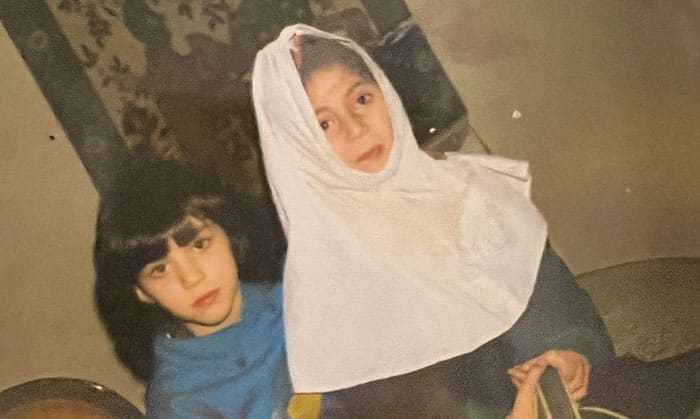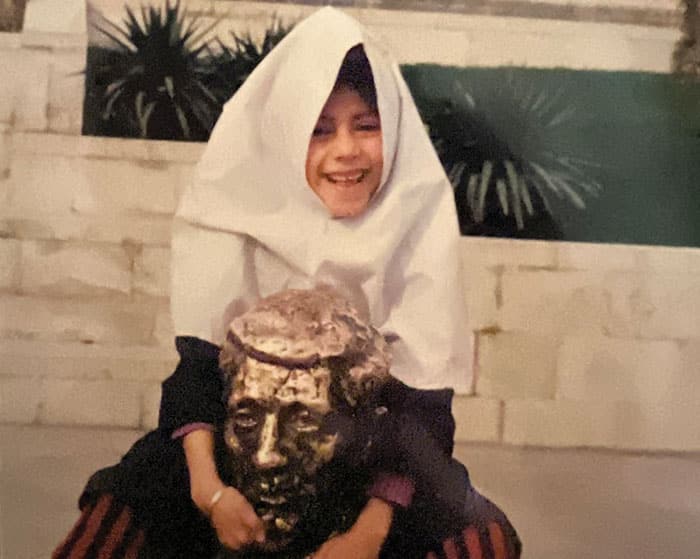
Some moments stay with you for a lifetime. The thud of a teacher’s stick hitting my 6-year-old classmate because she was not wearing the hijab perfectly is a lasting memory. We were all young Mahsa Aminis in this school in Tehran. We were forced to wear the chador, forced to stomp on the American and Israeli flags, forced to chant “Death to America, Death to Israel.”
When I asked my parents why we had to do these things, my parents’ sad eyes answered before the words “because we have to” followed.
When I was 7 years old, my mother, my young sister and I fled for America as my father stayed behind. We moved into a cramped apartment in Los Angeles with family and started over. My mother wanted a better life for my sister and me, a life where we as women had freedom and power—the power to live, to dress, to worship, to love, to dream as we wish as full and equal humans.
But my heart was always with my classmates in Iran who grew up powerless and voiceless in my homeland. For decades, I watched the legacy of Cyrus the Great and Rumi become the reality of brutality and oppression. For decades, I watched with hope for a turning point like this—a symbol that would galvanize the people, a moment of change. There have been other acts of civil disobedience, other protests, other uprisings. But this one feels different, and it must be different.
This time we have a hero, Mahsa Amini. In unprecedented numbers, women and men in Iran are risking their lives for freedom. We have social media to amplify their fight, their sacrifice and their stories. We have anthems and music and art. We have the world’s attention, but we cannot lose it.
What is unfolding in the streets of Iran is the most consequential fight for women’s and human rights of our generation. Because we are all Mahsa Amini.
Those of us who have a voice, who have power, who have a platform must lend all of it right now to the women who have none of it. If not now, when? If not us, who?
If the women of Iran are not free, no one is free. It’s time to transform our heartache into hope, our emotion into action.
If the women of Iran are not free, no one is free. It’s time to transform our heartache into hope, our emotion into action. We must not stop chanting, protesting, posting until we bring change to Iran and the world.
On the entrance to the United Nations are inscribed these powerful words from Persian poet Sa’adi: “Human beings are limbs of one body; In creation they are indeed of one essence;
When life and time hurt a limb, Other limbs cannot remain unmoved;
If you’re not touched by others’ pain, the name human you do not deserve.”
In this moment, we are all Mahsa Amini, a shattered limb, in a broken body.
This is our moment. To make sure that there are no more Mahsa Aminis, to make her memory a blessing and her legacy a revolution.
Leah Yebri is a proud Iranian-American woman, mother, wife, and refugee. She and her husband Sam Yebri are activists in Los Angeles.






















 More news and opinions than at a Shabbat dinner, right in your inbox.
More news and opinions than at a Shabbat dinner, right in your inbox.